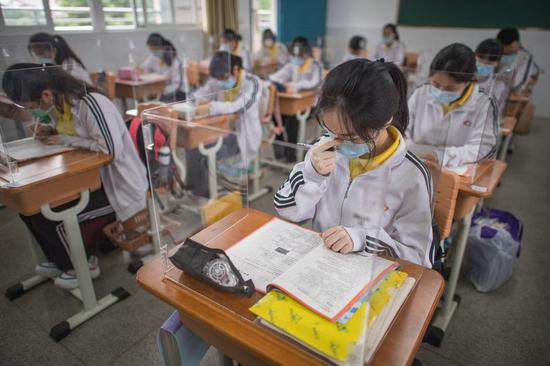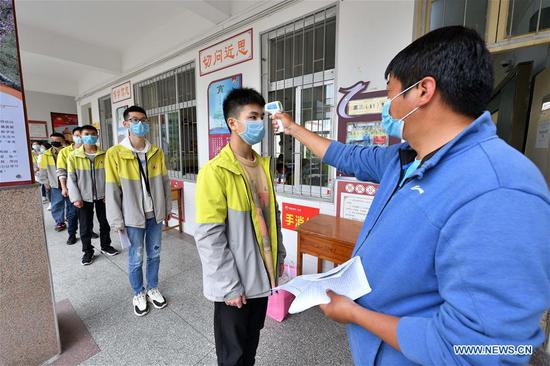China announced plans Thursday to scrap quota restrictions on two major inbound investment schemes and further streamline the procedures for foreign institutional investors, a step that will boost the long-term development of the domestic capital market, analysts said.
The country will remove quotas on the dollar-denominated qualified foreign institutional investor (QFII) scheme and its yuan-denominated sibling, RQFII, according to a new rule issued by the People's Bank of China and the State Administration of Foreign Exchange, which will take effect on June 6.
Qualified investors will be allowed to freely choose in which currency and when they remit money to the country and are expected to see simpler outward remittance procedures for securities investment gains, according to the rule.
The removal of investment caps, as well as simplified process, will guide more foreign investment into China's stock market, which already saw inflows of overseas funds last month, said Yang Delong, chief economist of First Seafront Fund.
International investors have already shown their interest in China's capital market since the inclusion of Chinese stocks and bonds in many major global indices, noted Wen Bin, chief analyst at China Minsheng Bank, adding that the new rule will further facilitate such investments.
Chinese stocks ticked up on the news. The benchmark Shanghai Composite Index closed nearly 1 percent higher by midday Friday, with securities brokers leading the gain.
As foreign institutional investors tend to have a long-term and value investment style, the further opening up of China's capital market will also help reduce market fluctuations due to short-term speculation, said China Merchants Fund in a research note.
The new rule will also enhance the role of Chinese yuan in the global financial market, analysts said.
In a low-interest-rate environment, the relatively high yield of China's bonds is very attractive to foreign capital, and more fund inflows via the schemes will further support the yuan's value, according to China Merchants Fund.
Despite rising protectionism and disruptions of the pandemic, China has been unwavering in opening up its financial sector, honoring its promise to lift restrictions in a number of fields.
The country scrapped foreign ownership caps on securities firms on April 1, which has inspired many foreign companies to set up wholly-owned subsidiaries.
Li Jianjun, a researcher with think tank Zhong Shang Zhi Ku, said the new rule in especially relevant at this moment as the country is stepping up efforts to develop a mature capital market that will allow companies to expand ways of financing.


















































